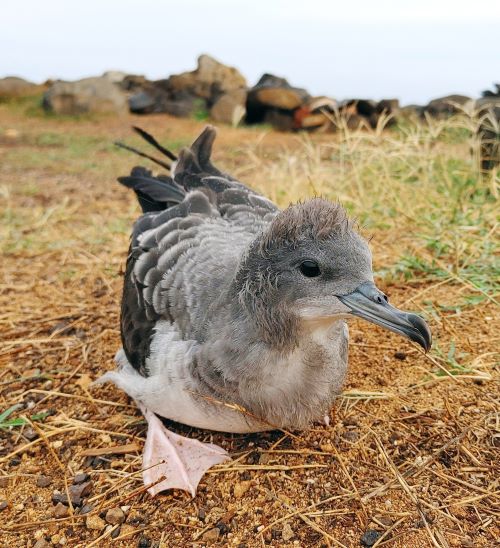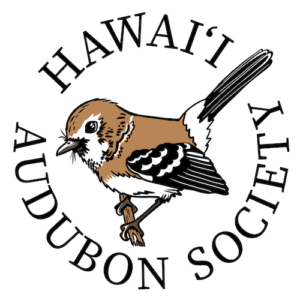
How Bird Flu and Fallout Mix Together
/ Bird News, General Updates / By
Susan Scott
Bird Flu Collides with Fallout Season
By Susan Scott
Just when caring Hawaiʻi residents are rescuing hundreds of fallen ʻuaʻu kani (Wedge-tailed Shearwaters) during fallout season, bird flu has arrived on Oʻahu. We want to help minimize the spread of this virus, while continuing to assist and rescue stranded ʻuaʻu kani.
Facts are changing rapidly. Use the words Seabird Fallout and Bird Flu Hawaiʻi on Internet searches for updated information. Here’s what we know today:
- Through December, carry disposable gloves, masks, a clean towel and a cardboard box in your car. If you find a live ʻuaʻu kani sitting on a sidewalk, road, or in vegetation, don protective gear, cover the bird with the towel, place it in a box, and take it to Kailua’s Feather and Fur Animal Hospital 24/7.
- Shearwater chicks looking for the ocean, but getting disoriented by city lights and falling to the ground, are solitary, and therefore, highly unlikely to have bird flu.
- The risk of bird flu causing illness in humans is low, but the virus is deadly to birds. Wash your hands and all contact fabrics after handling any wild birds.
- If you see sick or dead doves, ducks, chickens, sparrows, or other bird species, call the Hawaiʻi Department of Agriculture’s Animal Industry Division: (808) 483-7100 or (808) 837-8092. Follow their instructions.
- Infected birds may have no symptoms for days or weeks, then sicken and die.
- Hawaiʻi is the last state to report bird flu, present worldwide. It has several names: avian influenza, H5 bird flu, H5N1, and HPAI (Highly Pathogenic Avian Influenza.)
- If you love your backyard and neighborhood birds, do not feed them until the virus is contained. Feeding causes congregating. If one dove or one pigeon has the virus, it infects all birds that come near it.
- Links with more bird flu and seabird fallout information:
- On Tuesday, November 18th Wahiawa had the first detected outbreak in a private duck rescue facility.
- Listen to this 11-minute report on HPR’s The Conversation.
- Bird flu has been found on the U.S. mainland and other parts of the world in poultry farms, dairy cattle, and some humans: CDC bird flu summary.
- Hawaii Wildlife Center
- Latest Hawaii DLNR blog 11-26-24 — “As seabird fallout season continues, rescuers should protect against avian flu.”
